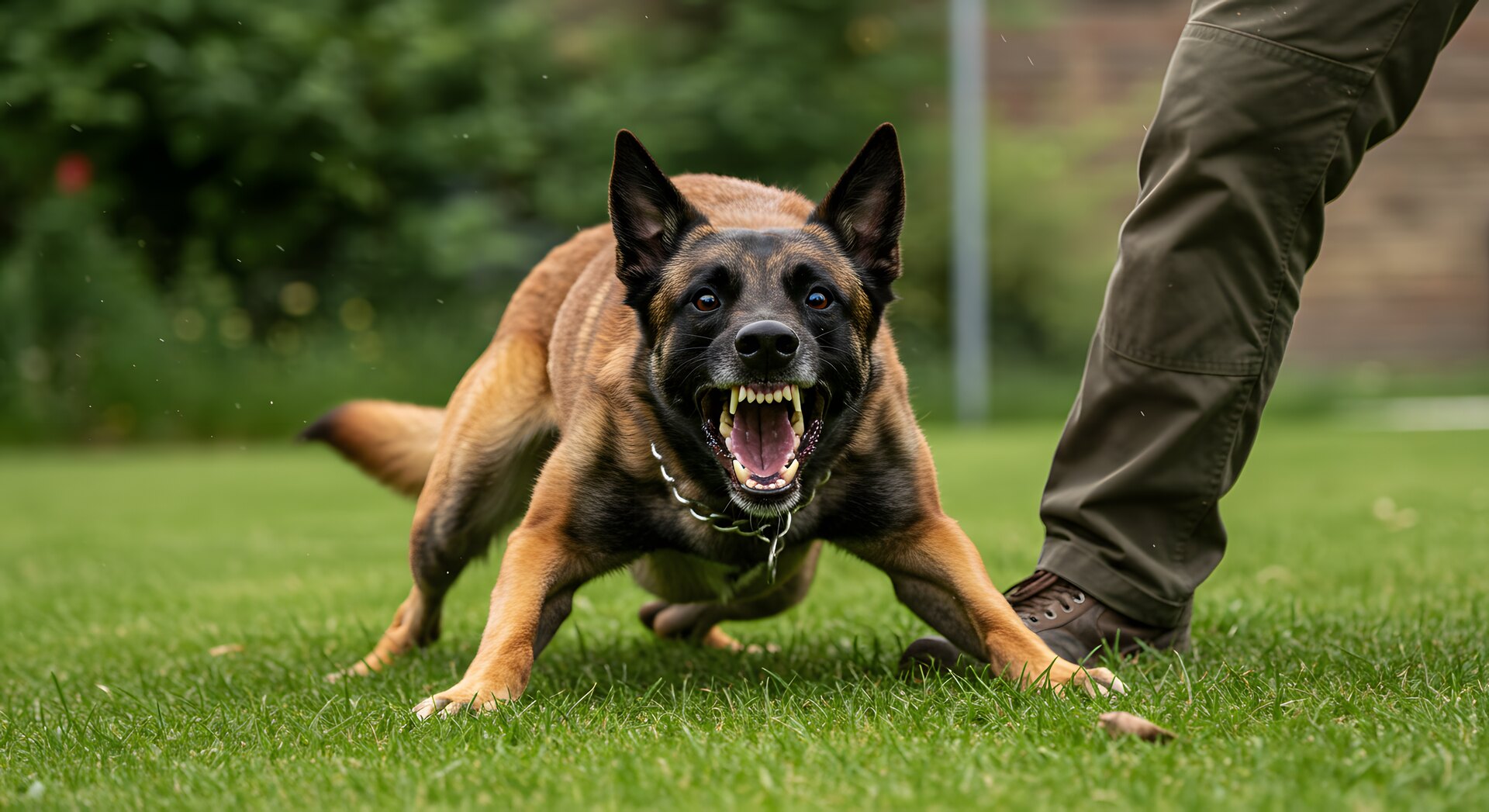Signs Your Dog is Protective Over You (and When It Becomes a Problem)
July 22, 2025

Dogs are loyal by nature, but sometimes their protective instincts go beyond affection — and into potentially problematic territory. Understanding the signs that your dog is protective over you can help you build a healthier, safer relationship with your pet — and everyone around them.
In this guide, the professional trainers at iTrainK9 explain what protective behavior looks like, why it develops, and when it might be time for training or behavior correction.
What Does It Mean When a Dog Is Protective?
A protective dog perceives a person, space, or object as something they must guard — whether or not there’s an actual threat.
Some level of protectiveness is natural in breeds like:
- German Shepherds
- Rottweilers
- Dobermans
- Belgian Malinois
But any dog, regardless of breed, can develop protective behaviors if they feel their owner or territory is in danger.
Top Signs Your Dog Is Protective Over You
Below are the most common warning signs of a protective dog:
1. Blocking or Herding Behavior
Your dog physically puts themselves between you and others — especially strangers or other animals. This “herding” is a common early sign of protectiveness.
2. Growling or Barking at Strangers
When your dog growls, barks, or shows teeth around people approaching you, they may be guarding you from what they perceive as a threat.
3. Tense Body Language
Look for:
- Raised hackles
- Stiff tail
- Ears pinned back
- Focused eye contact with a perceived “threat”
4. Following You Everywhere
While “Velcro dogs” are common, if your dog shadows you constantly and becomes agitated when others approach, they may be guarding rather than bonding.
5. Overreacting to New Environments or Visitors
A protective dog often becomes reactive in new situations — especially when meeting other people or pets.
6. Ignoring Commands When “Guarding”
If your dog knows basic obedience but stops listening when they think you’re “in danger,” this is a red flag.
Is My Dog Being Protective or Possessive?
There’s a fine line between protectiveness and possessiveness.
Protective Behaviour:
- Acts when sensing real threat
- Returns to calm when the threat is gone
- Responds to commands
Posessive Behaviour:
- Guards you from anyone; even loved ones
- Remains anxious, controlling, or reactive
- Ignores commands when guarding
If your dog becomes over-attached, reactive, or aggressive, it’s likely not healthy protectiveness — it’s possessiveness or anxiety, and it may require professional training.
When to Seek Professional Help
If your dog:
- Growls or snaps at family or friends
- Becomes uncontrollable on walks
- Shows signs of reactivity toward strangers
- Ignores your recall or commands in public
…it may be time for behavioral training.
At iTrainK9, we work with owners to:
- Address overprotective or possessive tendencies
- Reinforce obedience under distraction
- Reduce reactivity using desensitization and structure
- Build your confidence as a handler
Take the Next Step
If you’re asking, “Why is my dog so protective of me?” or worried it’s becoming a problem — we can help.
📍 Serving Ontario & Surrounding Areas
📅 Book a Free Evaluation Call
📞 Or call us today to talk with a certified trainer
FAQs About Protective Dogs
Can a dog be too protective?
Yes — when protection turns into aggression, possessiveness, or fear-based reactivity, it can pose safety risks.
Do certain breeds become more protective?
Yes. Breeds like German Shepherds, Rottweilers, and Dobermans are genetically predisposed to guarding behavior.
Can protective behavior be trained out?
Absolutely. With the right structure, socialization, and obedience work, most protective tendencies can be managed or corrected.
Conclusion
Dogs who are protective over their owners aren’t “bad” — but without boundaries, it can lead to stress, aggression, or disobedience. Recognizing the signs early and seeking help when needed will lead to a happier, safer life for both you and your dog.
Ready to regain control? Contact iTrainK9 today and speak to a certified behavior specialist.

.png)
.png)
.png)